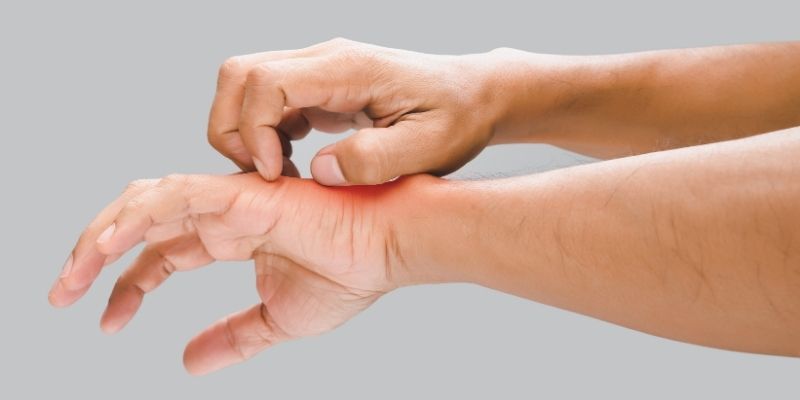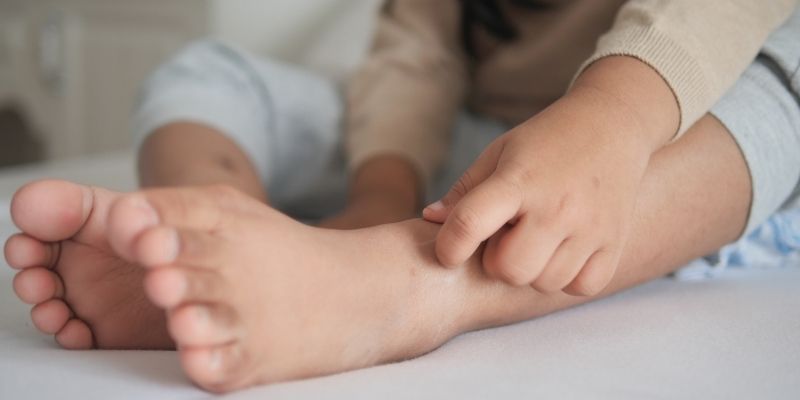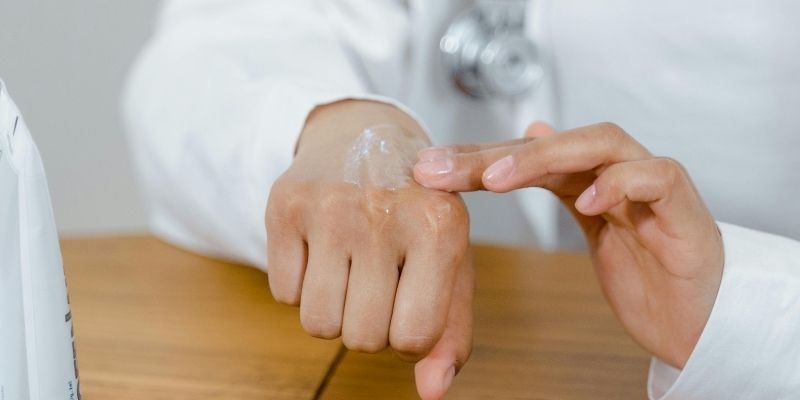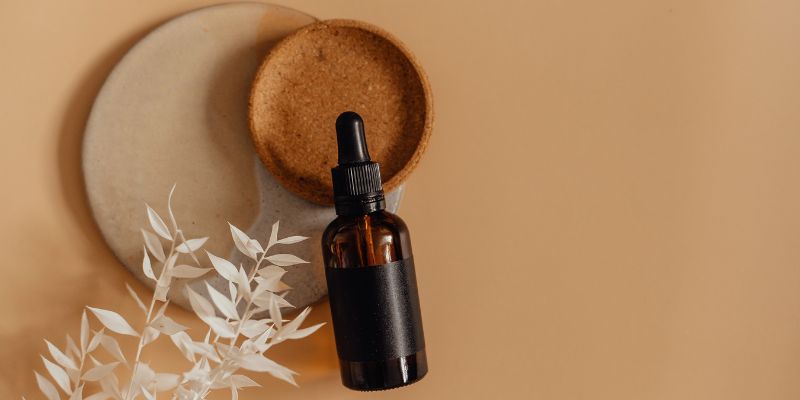Advertisement
Itching hands and feet can disrupt daily life and quality of life. Chronic itchiness may indicate health issues or allergic reactions, while environmental factors or minor irritations may cause occasional itchiness. Knowing the causes of itchy hands and feet can help people get treatment and prevent them. This comprehensive study examines the causes of hand and foot itchiness, treatments, and prevention methods.

Skin or body conditions can itch hands and feet. Locating the itching source helps manage and treat it.
Palmoplantar psoriasis causes palm and sole itching. Rapid cell replacement causes red, scaly, itchy, painful, and uncomfortable patches of skin in this long-term autoimmune condition. Shoes and other pressure can break and bleed these thickened, raised spots. PAIN can hinder daily tasks. Topical corticosteroids and vitamin D analogs treat itchy, flaky palmoplantar psoriasis. Methotrexate or biologics may treat severe symptoms. Phototherapy helps non-responders to topicals. High-profile palmoplantar psoriasis can hurt and embarrass you. Conditions management improves health and life quality.
Many foods, plants, and materials can cause allergic reactions that itch your hands and feet. Allergens can cause redness, swelling, and severe itching. Some people get mild irritation, and others have hives or eczema. Find and eliminate the trigger to manage allergens. Over-the-counter antihistamines and topical corticosteroids reduce itching and swelling. In severe allergies, epinephrine auto-injectors may be needed for anaphylactic reactions. A detailed allergy diary can also help people track their reactions and identify triggers, which can improve their environment and lifestyle.
Sarcoptes scabies mites burrow into the skin and cause severe nighttime itching. It can affect hands, feet, and other body parts. Scratching worsens scabies' itchy rash of small red bumps, blisters, or sores. Cleaning and skin health are crucial in families and nursing homes because scabies spread through skin contact. Permethrin and ivermectin kill scabies mites. To prevent re-infestation, treat close contacts together. Hot water washing clothes and bedding kills mites and their eggs. Treatment is needed because scratching an infestation can cause new infections.
Chemotherapy often causes palmar-plantar erythrodysesthesia or hand-foot syndrome. Red, swollen, peeling hands and feet can be painful. Hand-foot syndrome may be caused by chemotherapy's toxic effects on fast-dividing skin cells. Mild or severe hand and foot pain can make even simple tasks difficult. Topical emollients, painkillers, and chemotherapy dosage adjustments may be used to treat symptoms. Doctors may recommend staying off your feet or out of the heat to relieve pain. Early hand-foot syndrome diagnosis and treatment improve chemotherapy outcomes.
Hands and feet can itch from painkillers, antibiotics, and antifungals. Following the initiation of a new medicine or prolonged usage, these responses might vary in intensity from moderate discomfort to intense itching. An allergy or medicine sensitivity may cause itching, rashes, or hives. Discuss your medication itchiness with your doctor and other options. Switching classes or stopping the medication may alleviate symptoms and prevent issues. Talking to doctors about bad reactions can improve medication management and keep patients safe.
Chronic hand eczema (hand dermatitis) causes inflammation, dryness, and itching. Allergies, chemical or soap exposure, or excessive handwashing can cause this condition. Chronic hand eczema can make daily tasks harder, reducing quality of life. Skin that hurts is annoying. Topical corticosteroids, mild cleansers, and emollients reduce inflammation and itching. Keeping skin healthy requires a regular skincare routine and avoiding irritations. Systemic medications may be needed for severe chronic hand eczema. Consult a doctor.

The cause determines how to treat itchy feet and hands. Symptom-reduction methods include:
Protect the skin and limit exposure to allergens to avoid itchy hands and feet. Some practical advice:
A doctor should treat itching if it persists or is severe. Itching that disrupts daily life or sleep requires medical attention. Sudden changes in skin lesions, new lumps or rashes, and infection symptoms like pus, fever, or swelling require immediate evaluation. These changes may indicate more profound issues that need further evaluation.
Itching with jaundice, stomach discomfort, or extreme exhaustion may signal a severe illness that requires further evaluation. People should see a doctor if OTC and home remedies don't work after a while. Consult a doctor to ensure proper evaluation and treatment to relieve symptoms and address underlying causes.
Knowing what causes itchy hands and feet, how to treat it, and how to prevent it can help people take better care of their skin. Allergic reactions, palmoplantar psoriasis, and chronic eczema can itch. Recognizing, treating, and seeing a doctor can improve the quality of life. Health issues can be detected and understood earlier with skincare and proactive monitoring.
Advertisement

By Alison Perry/Feb 08, 2025

By Aldrich Acheson/Dec 07, 2024

By Darnell Malan/Apr 02, 2025

By Elva Flynn/Oct 09, 2024

By Celia Shatzman/Oct 13, 2024

By Martina Wlison/Nov 22, 2024

By Jennifer Redmond/Oct 14, 2024

By Verna Wesley/Apr 02, 2025

By Madison Evans/Nov 14, 2024

By Georgia Vincent/Oct 07, 2024

By Aldrich Acheson/Oct 07, 2024

By Madison Evans/Dec 06, 2024